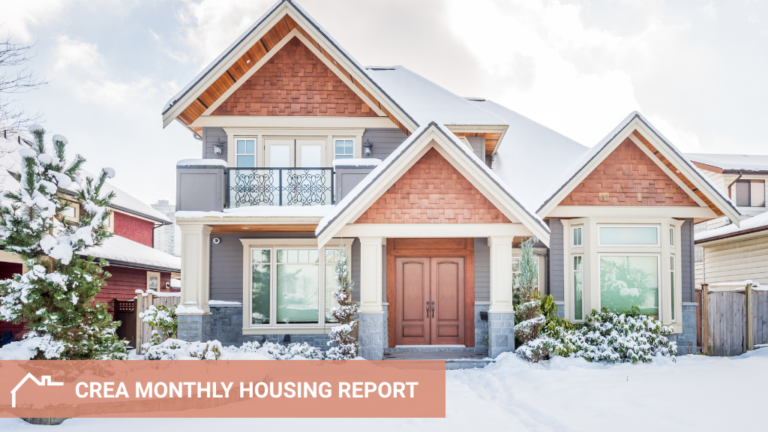
As Canada’s housing landscape continues to tilt in favour of buyers – thanks to lower interest rates and a growing supply of homes in many major markets – affordability is improving in some of the country’s most expensive markets. For many renters, this signals a long-awaited opening into the market. But rather than rushing in, prospective buyers are taking a more thoughtful, strategic approach, carefully assessing their timing, finances and long-term goals.
According to a recent Royal LePage® survey, conducted by Burson,1 28% of Canadians who currently rent say that, before signing or renewing their current lease, they considered buying a property rather than renting. When asked what factors influenced their decision to rent instead, 40% of respondents said they are choosing to wait for property prices to decline; 29% are choosing to wait for interest rates to decrease further; and 28% say they are working towards buying a property, and continuing to rent allows them to save for a sufficient down payment. Respondents could select more than one answer.
More than half of all renters surveyed (54%) say they plan to buy a property in the future; 16% say they plan to do so within the next two years, and 21% plan to buy in the next two to five years.
“We continue to see that many tenants are motivated to get a foot on the property ladder,” said Phil Soper, president and CEO, Royal LePage. “In Canada’s least affordable cities, entry-level opportunities have improved significantly, with home prices off last year’s peaks, incomes up and borrowing costs trending lower. Still, many renters – including the 40% who told us they’re holding out for further price declines – are choosing to wait. History suggests they may be disappointed. Over the past 75 years, Canadian home values have risen approximately 5% annually, running consistently ahead of inflation. The window of opportunity may be narrower than it appears, and strategic buyers are beginning to move.”
Nationally, nearly one third of renters (31%) say they do not plan to purchase a home. Of those respondents, 53% say they don’t believe their income will allow them to buy a property in the neighbourhood they want to live in, 40% say that renting remains more affordable, and 40% say they don’t want to take on the responsibilities of maintaining a property. Respondents could select more than one answer.
Affordability struggles persist, despite dropping rental rates
After surging in response to interest rate hikes and rising mortgage costs in 2022, rental prices in many cities across Canada have been on the decline for the last several months, offering those seeking rental accommodations more favourable market conditions.
According to the latest National Rent Report by Rentals.ca and Urbanation Inc.,2 the average national price of a one-bedroom rental unit in Canada decreased 3.6% year over year to $1,857 in May 2025. Meanwhile, the average price of a two-bedroom unit decreased 4.6% year over year to $2,225.
“Softening activity in the rental market has been driven by a combination of factors. On one hand, the completion of purpose-built rental projects and condominiums in major cities like Toronto and Vancouver has introduced a surge of new supply to both the resale and rental markets. On the other, demand has tapered slightly as international student permits have been capped and lower interest rates have encouraged some renters to make the leap into home ownership,” said Soper. “As a result, tenants may now be in a better position to secure rentals with more space, upgraded amenities, or more desirable locations, often at more competitive prices.
“Rental markets tend to respond more slowly than resale housing to changes in the economy. Home prices have softened in many regions through the first half of the year, and we’re now seeing that relief begin to flow through to the rental sector. For the first time in years, some tenants are seeing more choice and negotiating power,” added Soper. “Yet, for those aspiring to own, this may be the moment to take a harder look at what’s possible. With prices down in many markets, rates easing, and wages growing faster than the cost of housing, the path to ownership – long a distant beacon for many – may now be coming into clearer focus.”
Despite the improvements, affordability continues to be a challenge for renters. While rents have eased for eight consecutive months, they remain well above historical norms. Nationally, rents are 5.7% higher than they were two years ago and 12.6% higher than three years ago, according to the report. Over the past five years, average asking rents in Canada have risen by an average of 4.1% annually, outpacing wage growth.
Nationally, 37% of renters say they are spending between 31% and 50% of their net income on monthly rent costs, while another 37% are spending 30% or less, and 15% are spending more than half of their income on rent.
Challenges with affordability are also forcing renters to make hard choices. When asked if they’ve made any sacrifices in order to afford their rent, 40% of tenants said they have reduced spending on groceries and food; 30% said they have reduced contributions to savings or retirement; 21% said they are accumulating credit card debt; and 20% said they are taking on a second job or side hustle. Respondents could select more than one answer.
“Even with several months of decreases, rents are still significantly higher than they were just a few years ago,” said Soper. “Meaningful policy action is needed to restore long-term affordability.”
Read the full press release and review the data chart for more information and regional insights:
Royal LePage resources for aspiring homeowners:
To help aspiring homeowners, Royal LePage has published a number of online resources available at the following links:
- Moving to a new province? Here’s how to relocate like a pro
- Federal government announces landmark adjustments to mortgage rules for first-time buyers in Canada
- 5 financial factors first-time buyers should consider on their path to home ownership
- 30-year amortizations on insured mortgages for new build homes now available for first-time buyers
- From renter to homeowner: Your complete guide to home ownership in a competitive real estate market
- Real estate terminology 101
- Expert Q&A: What you need to know about buying a property pre-construction
- Saving for your first home? Here’s what you need to know about Canada’s First Home Savings Account (FHSA)
- What is the Home Buyers’ Plan?
1Burson used the Leger Opinion online panel to survey 1,854 Canadian renters, aged 18+. A robust oversample was collected in Quebec (n=878) as well as in 9 major cities across Canada (Vancouver, Calgary, Edmonton, Winnipeg, Toronto, Ottawa-Gatineau, Sherbrooke, Quebec City, and Montreal) The survey was completed between June 2 and June 9, 2025. Weighting was applied to age, gender, regions, and cities based on 2021 census figures. No margin of error can be associated with a nonprobability sample (i.e., a web panel in this case). For comparative purposes, a probability sample of 1,854 respondents would have a margin of error of ±2%, 19 times out of 20.
2May 2025 Rentals.ca Rent Report, Rentals.ca Network data and Urbanation Inc., June 2025. The data used in the National Rent Report analysis is based on monthly listings from the Rentals.ca Network of Internet Listings Services (ILS). The Rentals.ca Network of ILS’s data covers both the primary and secondary rental markets and includes basement apartments, rental apartments, condominium apartments, townhouses, semi-detached houses, and single-detached houses. Properties listed for greater than $5,000 per month, and less than $500 per month are removed from the sample. Similarly, short-term rentals, single-room rentals, and furnished suites are removed from the sample when identifiable.






